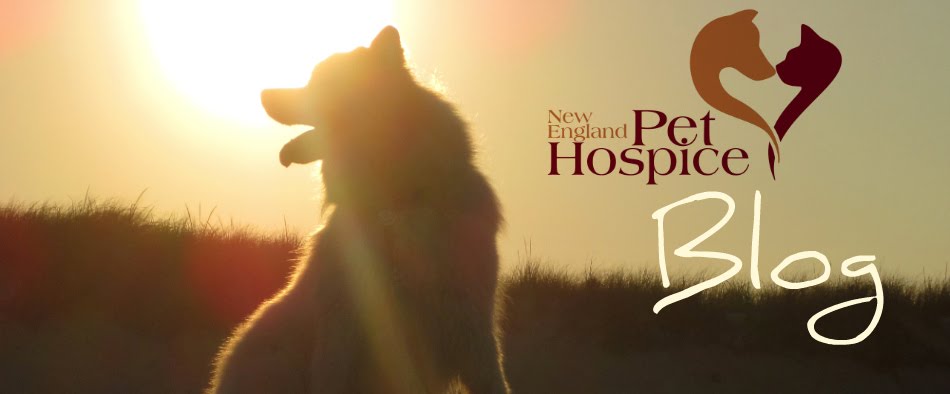Some years ago, I was afflicted by an extreme form of a common disease that affected forever how I think about life, illness, wellness and care giving. It was also the start of the long journey that led me to hospice work and animal hospice care specifically. Over the course of that 2 years, I visited the emergency room 14 times, was admitted to the hospital six times for stays of 3-7 days each, saw more than a dozen different doctors/specialists, tried more than 60 different conventional treatment options and at least a dozen alternative modalities. There were many days when I thought I would never get better, some days when I thought I would die, and more than a few when I wanted to give up.
I had doctors who distrusted me, doctors who were intrigued by me, doctors who sadly shook their heads and said nothing could be done, doctors who said I just had to accept my "new reality", doctors who excitedly wanted to test out their new theory or treatment on me. And one who kindly and compassionately stood by me always and persisted, eventually successfully, in his goal to cure me.
Through all the ER visits, all the days and nights in the hospital, all the trips to specialists and new clinics, my husband and I encountered hundreds of caregivers from doctors to nurses to technicians to fellows to residents to administrators. Whenever we set out to get help, the one thing that was on the forefront of my mind was this:
I hope they are kind.
Really, that was it. I didn't hope they cured me. I didn't hope they were smarter than the last one. I didn't hope their office was fancier or their fish tank bigger. I just hoped they were kind.
My experience taught me so many lessons that I have taken with me into my role as caretaker. Here are a just a few:
1. Never, ever underestimate the impact that your simple kindness, your compassion, your smile and your humanity can make on those for whom you are caring. It matters. It impacts how they feel about the encounter, the experience, their situation. You don't have to make it all better, have all the answers, or fix everything. You just have to care.
2. Touch is comforting. We are so afraid to touch each other. We respect "space", we back away, we worry about whether it will be taken the wrong way. I do ask before hugging someone (usually), but I don't hesitate to reach out to hold a hand, touch an arm, put a hand gently on a shoulder.
3. It is critically important to stay out in front of pain. Pain is MUCH harder to control when it is out of control. If pain is an issue, regular dosing of pain medication is the way to go. Human hospice has long recognized this. Riding the cycle of pain, medicine, relief, return of pain is bad for the body and bad for the mind. It causes anxiety and tension. It produces more pain.
4. Being in a bed, always looking up at your caretakers is a vulnerable, frightening place to be. It is tiring looking up. Put me at ease; meet me at my level. Look me in the eye and connect with me. I can take it, be honest.
5. Callous caretakers have absolutely no place in care taking. If you are just punching the clock and going through the motions, please do us all a favor and find another profession. You may not be able to help me or cure me, but at least give me compassion, pay attention to my needs and try. I don't want to be here; don't make me feel like you don't either.
Although these lessons are based on human experience, they apply equally to our animals. Kindness matters, touch is comforting, consistent control of pain is crucial, get down on your animals level and look him or her in the eye, make your animal the center of your world while you are caring for him or her. And if the professionals who assist you in caring for your animals don't do the same, find others who do.
Trust me, it matters.


Although for different reasons, as one whose experiences with the health care system were similar to your own, I thank you for this outstanding article, and I couldn't agree with you more!
ReplyDeleteThank you, Marty. This post was so personal to me, I almost didn't publish it, but I am glad to see that it resonates and seems to be helpful to so many.
ReplyDeleteBest wishes,
Heather
Founder & Team Leader
New England Pet Hospice, Inc.